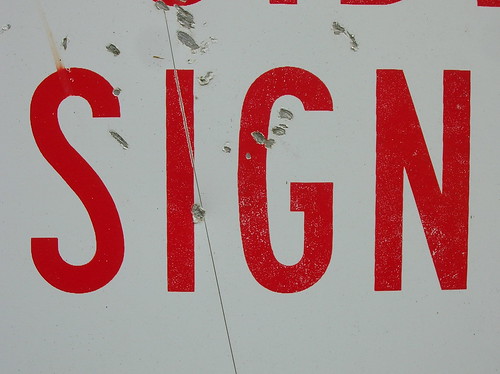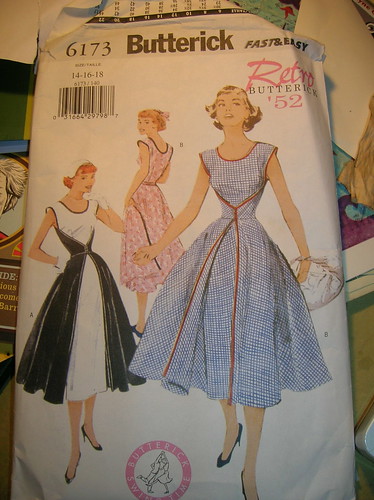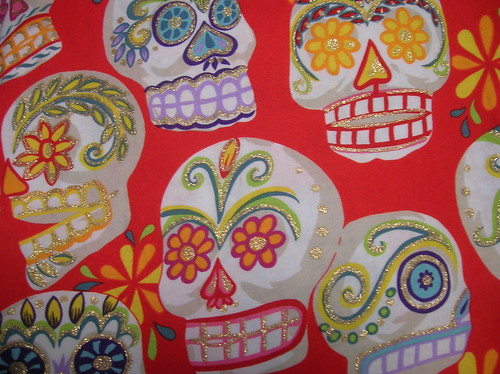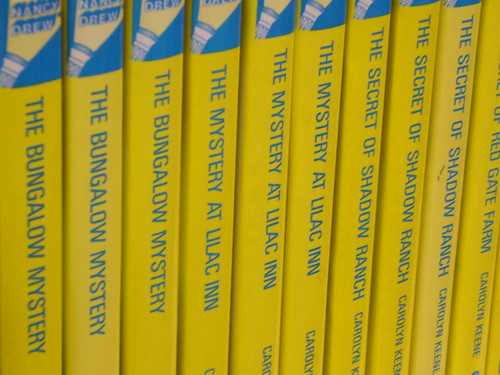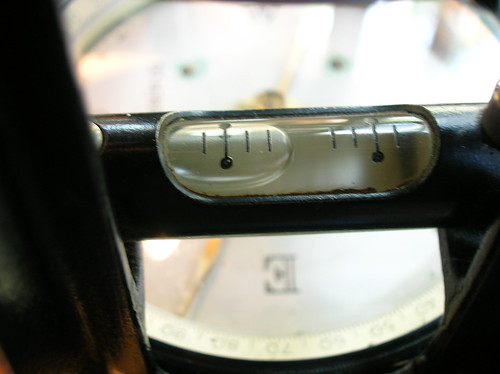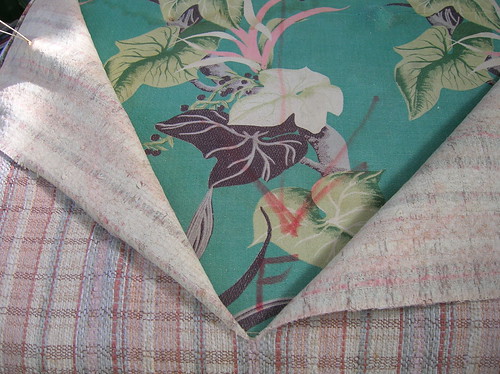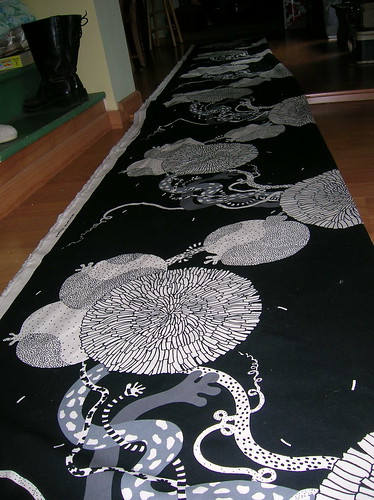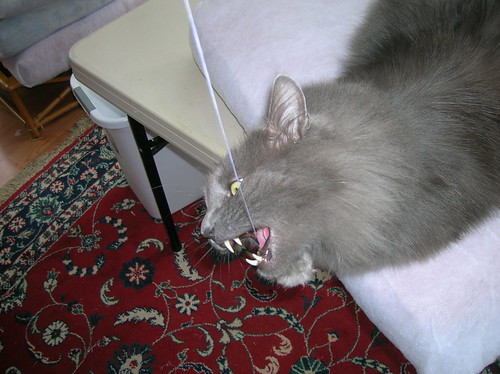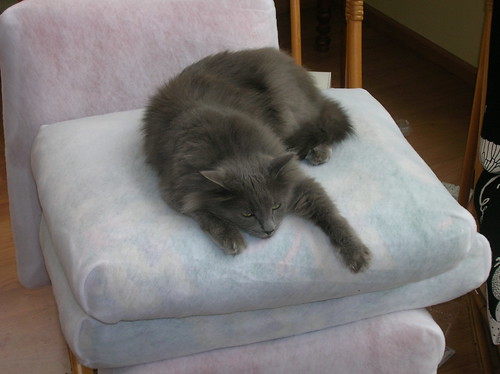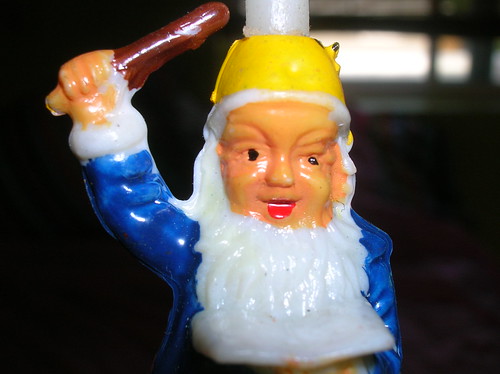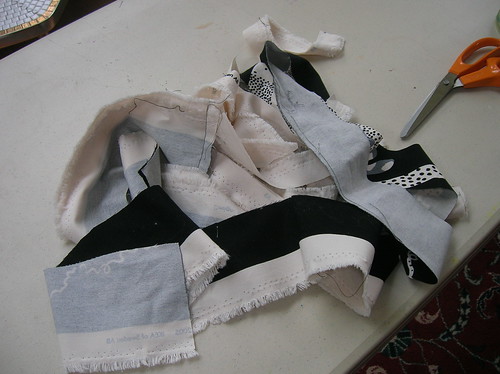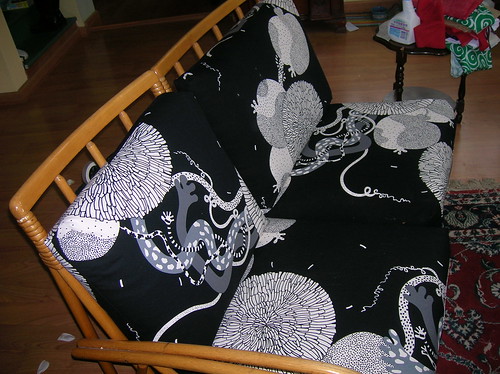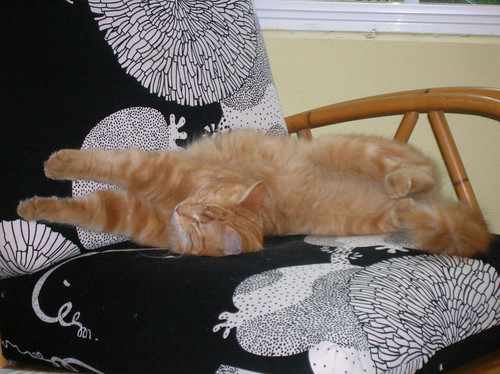
1. I am waiting out the eclipse, which is TONIGHT. I know, I know, after midnight makes it technically tuesday -- but when I read "full lunar eclipse on tuesday" I'm not thinking in the middle of MONDAY NIGHT. (here comes one of those 'there are two kinds of people in this world' statements. There are two kinds of people in this world: the kind who consider it to still be monday night until they go to bed, even if that technically falls into tuesday morning, and those letter of the law types (like ASTRONOMERS, I suppose) who get some kind of nutty thrill from being technically accurate. Not that I don't get a similar thrill being accurate about other things, but this one day/next day thing isn't one of them. hmph.)
2. I'm not sure I can stay awake. Maybe I'll set my alarm like I used to do way back in the day when I would get up to watch Friday Night Videos (which was quite scandalous since I would take careful note of every video played so I could share the bounty with my friend who had stricter parents that did not allow her to watch television on Friday night. The scandal was amplified because I would give her the recap in church.
Pastor: fire! brimstone! there'll be no butter in hell! Me: Prince!!!!! eeeeeeeeeeeeee!!!! My Friend: eeeeeeeeeee!!!! My Friend's Mother: silent, disapproving look. but she's not surprised since my father is 100% heathen, and my mother is suspect for consorting with said heathen. My Friend will have to read extra uplifting literature when she gets home. I will read Trixie Belden.) (We didn't have cable.)
3. Or maybe I should just go read my book. I'm reading the new Michael Chabon, and it's SO GOOD so far, but I'm not very far into it and I have to take it back to the library in 3 days. crap! 2 days.
4. Or I could write up one of the two books I've been meaning to write up. They're hard for different reasons, so I've been putting them off. (one I love a lot, and the other one I respect but didn't really like.)
5. the full moon is taunting me right this VERY SECOND by shining like headlights into my window. (or a headlight, I suppose, for the solar system's biggest motorcycle. ... or I guess the biggest one I can see from here. Or maybe it's just a car with one light. Or... I'm just going to abandon this combustion engine thing right now.)
6. I almost wish it was overcast because then I could go to bed without seeing any of the eclipse and feel like it was out of my hands! But NO. Ooh, it's behind a tree now, but that doesn't really count.
7. I am working a new freelance job that is about 20 miles from my house. I haven't had to drive that far on a regular basis in a long time. The work is varied and interesting, although not something I would want to do forever and ever. The person I'm working for is going through a horrific divorce so there is a lot of free-floating stress around.
8. OMG! I am having the most terrible urge to color coordinate my bookshelves. What has happened to me? This is the most preposterous idea in the world (said old, pre #8 me), but... I've seen several bloggers discuss it (
Crazy Aunt Purl and
SundryBuzz are two) AND I've seen it in a couple of magazines, and it is shifting from 'that would never work for me' to intriguing to drop-everything compelling. (flickr Rainbow of Books pool
here.) I think since so many of my books are shelf dependent
anyway, it's not as big a project as it may sound. I would probably do it shelf by shelf rather than EVERYTHING. (most of my shelves are fixed height, so certain books have to go in certain places whether or not that's where I would ideally put them.) If I actually go through with this mad fancy, I will take a picture. I have watched a ton of those clutter-clearing shows and always get pissed off when they suggest getting rid of books (usually so they can put some stupid vase or something in the bookcase)... HOWEVER, when I did my main purge a year or so ago, I did find that there were many books I was keeping only out of habit. Not that that has to do with much, I just thought I'd throw it out there. Blame it on the moon.
9. Speaking of which, I have mostly retired my Moon Grudge. Or let's say I have forgiven but not forgotten.
(you know what you did, anthropomorphic moon!)10 10 10 10 for everything everything everything everything
11. I can almost make my own eclipse if I pretend that the earth is in the shape of a plum tree. I'm sure it is in some religion or another.
12. this blog post is turning vaguely religious! What's up with that? I blame the nostalgia in item #2. I really am getting old!
13. oh, good grief. It's only 12:30 and I'm acting like it's four in the morning. (the time stamp for this post is inaccurate because I opened this thing before midnight so it would look like a monday post. I may be sneaky, but I'm not subtle! [note to self: develop more subtlety. suavity. savoir faire. tsunami. sassafras. sarsaparilla. super-powers. usurper-powers. sangfroid. siegfried and roy. ETCETERA.])
14. I made a crazy tower of runner beans this year in the garden (
instead of morning glories) and it has TIPPED OVER! I need to get out there with some rope or bungees or something, but I'm afraid it will be dead so I've been avoiding it. What will undoubtedly be its downfall is the fact that I haven't been watering either. The problem is that the vines grow to 30 feet (did I think they'd really get that long? no I did not.) and my crazy tower of recycled tomato cages only goes to about 9 feet. It's top heavy. (actually, I think it is entirely rescuable, and I can in fact see that the beans are now crazy huge and probably really stringy. I deserve stringy beans for my neglect, however.)
15. hey, guess what! still no eclipse. I'm not even sure (for sure) what time it's supposed to start.
16. $%#@ing plum tree. I am going to have to go OUTSIDE. oh, wait -- I just have to move the chair a little bit. ha ha! take that, plum tree. Disaster averted!
17. you know what I hate? I hate when people set their blog for just tiny RSS previews instead of the full text. 9 times out of 10 it does not whet my appetite for more, but it does irritate the hell out of me. I'm probably not really that irritated. the moon is making me exaggerate. (note how I am shirking responsibility! and wondering if I will wake up early enough to edit the hell out of this post in the morning since it almost certainly will make less sense by daylight, which is much more sensible than the light of the moon. everyone knows this.)
18. I have been thinking about one of my old stories. I kind of want to get it out and read it again, but then I worry that I'll get freshly frustrated and shove it back in its metaphorical drawer. (I believe its actual location is in a notebook in a box, and of course somewhere on this computer.) I think maybe I need to think about it a little more. There was a lot I liked about it, but it had a major, MAJOR problem.
19. I have Blame It On the Rain by Milli Vanilli stuck in my head because of my stupid blaming it on the moon ways way up there in nos. 17, 8, and others I'm sure. I should open iTunes and see what else I can blame it on. (only canada! what's up with that?)
20. Ooops! I got distracted there for about 10 minutes, not that you would know. I was thinking about illustrators and the fact that I seem to be coming across Russian themed things everywhere lately. (not in a big way, just a little bit here, a little bit there -- but I'm noticing it for some reason. Russia, Russia, Russia sounds a lot like Marcia Marcia Marcia when you say it my way.) Here's a link that combines them both:
Carson Ellis's painting of Kresty Prison.21. Maybe the eclipse really IS tuesday night...
22. plum tree difficulties AGAIN.
23. Oh, hey! I processed the audio book of the new Michael Chabon the other day and it is read by Peter Riegert. I have had big spongy-hearted love for him since Crossing Delancey.
24. I am going to start a haiku banjo band called the Plum Tree Difficulties.
25. I know what's going to happen: the eclipse will
finally start, and then it will go as slow as molasses. If it were 9PM,I'd be all "oh, the wonder of nature! shine on you crazy diamond, you." but at nearly 2 AM I am less patient.
26. Impatience is a problem for me. I think maybe it's because I think about everything for a million years before I reach any conclusions, so once I finally do arrive at a conclusion, I'm done waiting. Unfortunately, the waiting is usually not done with me. (hee hee. Now I'm starting to sound like The Sphinx from Mystery Men:
"Those who fail to plan, plan to fail." "Before you can learn to train, I must train you to learn." "He who questions training only trains himself at asking questions.")27. I think that's a good sign that it is TIME TO STOP. I'm going to go put on proper eclipse-wear and see what's what.
Tuesday daylight edit: I typed #'s 25-27 sitting on the floor under my desk because the moon had shifted, and then I went outside and sat on my car in the driveway to see the final bit. (well, the part where the moon turned all dark -- I did not stay awake for the whole moon re-emerging thing.) It was beautiful and I'm glad I did it, even though it put me at risk for the Total Lunar Eclipse Driveway Hatchet Murderer, whom I've never heard of before but that doesn't mean he's not out there.
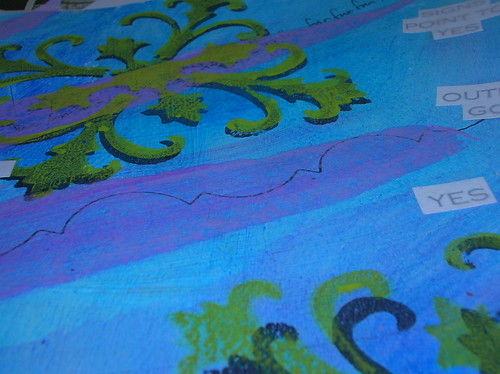
 by Charles Simic
by Charles Simic 
